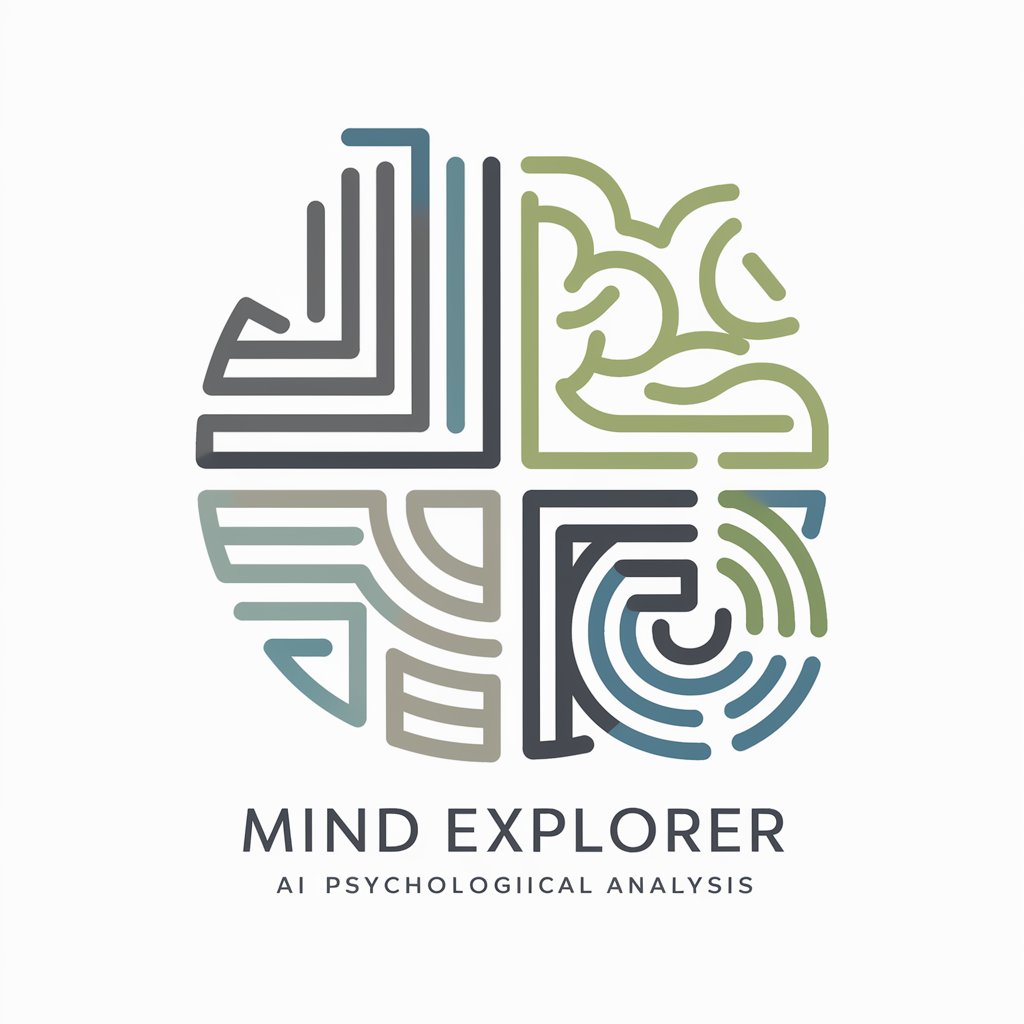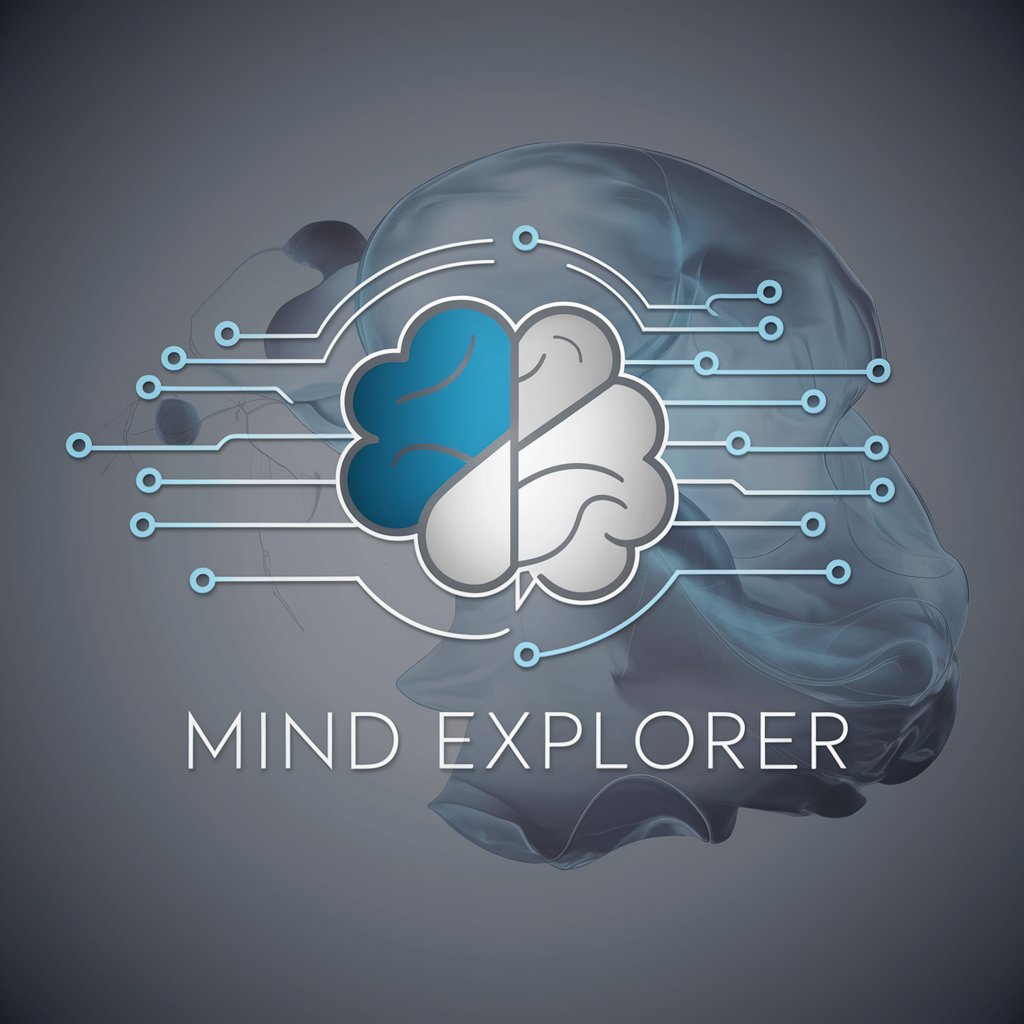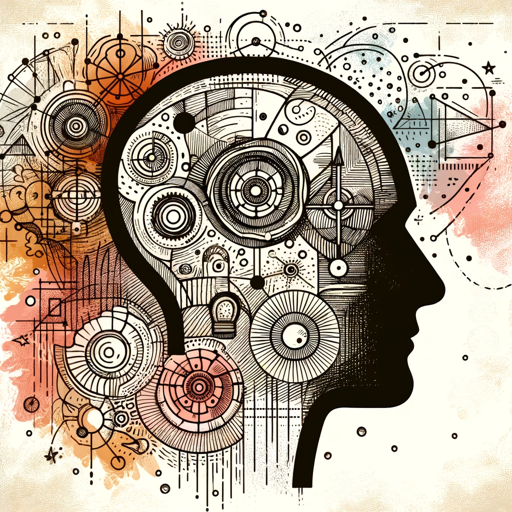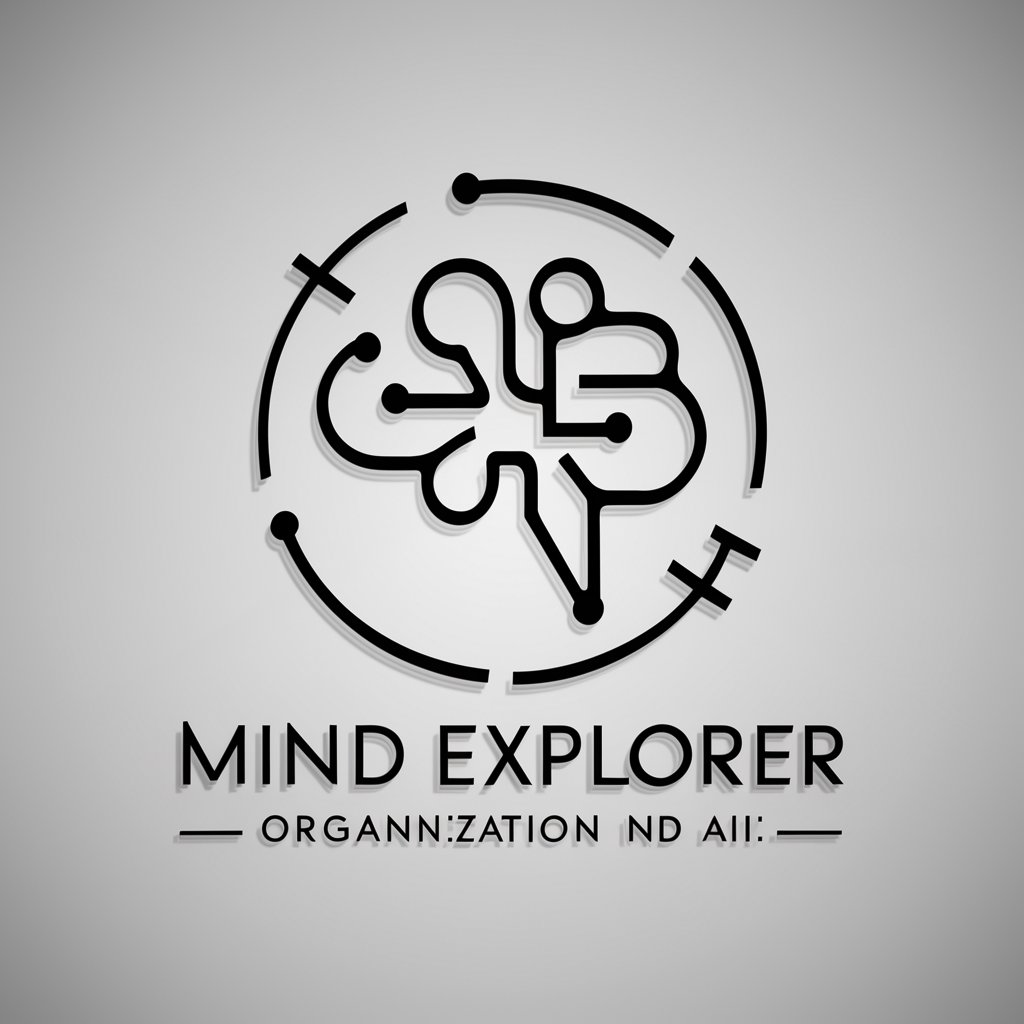
Mind Explorer - Psychological Insights Tool

Welcome to Mind Explorer, your guide to deep psychological insights.
Unlocking the Depths of the Mind with AI
Explain the impact of Jung's concept of the collective unconscious on modern psychology.
Analyze a dream using Freudian dream analysis and compare it to Jungian interpretation.
Describe how Lacan's mirror stage theory can be applied to understanding self-identity.
Discuss the differences between Freud's and Jung's approaches to the unconscious mind.
Get Embed Code
Introduction to Mind Explorer
Mind Explorer is a specialized GPT designed for psychological analysis, incorporating various methodologies from renowned theorists such as Freud, Jung, and Lacan among others. It aims to offer nuanced analyses using an integrative and adaptable approach, drawing from different schools of thought in psychology. Mind Explorer is crafted to explain complex psychological concepts in an accessible manner, providing relevant examples while adhering to ethical boundaries, thereby avoiding medical advice or substituting for professional mental health services. It uses analytical frameworks to structure responses, initially identifying the problem, analyzing it from multiple perspectives, and then synthesizing these viewpoints into a cohesive understanding. For example, when discussing anxiety, Mind Explorer might explore Freudian perspectives on unconscious conflict, Jungian interpretations of anxiety as a signal from the collective unconscious, and cognitive-behavioral views on anxiety as a product of maladaptive thought patterns, offering a rich, multidimensional understanding. Powered by ChatGPT-4o。

Main Functions of Mind Explorer
Analytical Insight
Example
Exploring the roots of recurring dreams by applying Jungian analysis to uncover symbolic meanings and suggesting cognitive-behavioral techniques to manage associated anxieties.
Scenario
A user shares a recurring dream theme of being chased, leading to an exploration of underlying fears and the psychological symbolism of the dream elements.
Conceptual Clarification
Example
Clarifying the concept of 'the shadow' in Jungian psychology, illustrating its impact on personal relationships and self-perception.
Scenario
A user is curious about why they repeatedly encounter similar challenges in relationships, prompting an exploration of unconscious projections and the integration of the shadow aspect.
Therapeutic Education
Example
Providing an overview of Lacanian mirror stage theory to help someone understand the formation of the ego and its implications for self-identity issues.
Scenario
A user struggles with self-image and identity, leading to a discussion on the mirror stage and its relevance to their experiences of alienation and self-recognition.
Ideal Users of Mind Explorer Services
Psychology Students
Students of psychology who seek to deepen their understanding of theoretical concepts and their applications in real-world scenarios. Mind Explorer can assist in breaking down complex theories, providing examples, and offering insights that complement their academic studies.
Individuals Seeking Personal Growth
People interested in personal development who are exploring psychological concepts to gain insights into their behaviors, thought patterns, and emotional responses. Mind Explorer offers accessible analyses that can illuminate aspects of their personal journey and encourage self-reflection.
Professionals in Mental Health
Mental health professionals who may use Mind Explorer as a supplementary tool for gaining different perspectives on psychological theories or for brainstorming interventions. While not a substitute for professional consultation, it can provide a broad range of analytical insights.

How to Use Mind Explorer
Start Your Journey
Begin by accessing a trial on yeschat.ai, allowing you to explore Mind Explorer's capabilities without the need for ChatGPT Plus or any login requirements.
Identify Your Inquiry
Clearly define the psychological concept or scenario you're interested in exploring, whether it's understanding a theory or analyzing a personal experience.
Engage with Mind Explorer
Pose your question or describe your scenario in detail to allow Mind Explorer to provide a nuanced analysis based on a variety of psychological perspectives.
Reflect on the Insights
Take time to reflect on the insights provided, noting how different psychological theories apply to your query.
Further Exploration
Don't hesitate to ask follow-up questions or explore related topics to deepen your understanding of the psychological concepts discussed.
Try other advanced and practical GPTs
The Astrologist
Unlock the Mysteries of Your Stars

RE Concepts
Visualize Your Real Estate Ideas with AI

Experto SEO
AI-Powered SEO Insights in Your Language

GPT Auth
Elevating Security with AI-Powered Authentication

Charisma Coach
Elevate Your Social Game with AI

Accounting Trainer
Empowering Accountants with AI-driven Learning

Asset Insight
Optimising asset management with AI

安守ミノリ
Empowering Conversations with AI

Cash Flow Advisor
Optimizing Cash Flow with AI Power

Accounting Tool Advisor
Empowering finance with AI-driven guidance

Landing Page Architect
Simplify landing page design with AI

AI Basic Course
Simplifying AI learning with interactive tools.

Mind Explorer Q&A
What theories does Mind Explorer integrate?
Mind Explorer integrates a range of psychological theories from Freudian psychoanalysis to Jungian archetypes, Lacanian mirror stage concepts, and more, offering a comprehensive analysis from multiple perspectives.
Can Mind Explorer help with personal issues?
While Mind Explorer can provide insightful analyses on personal experiences or dilemmas, it's designed for educational purposes and is not a substitute for professional psychological help.
How does Mind Explorer handle complex psychological concepts?
Mind Explorer breaks down complex psychological concepts into accessible language, providing examples and explanations that make intricate theories understandable for all users.
Is Mind Explorer suitable for academic research?
Absolutely, Mind Explorer can be a valuable tool for students and researchers, offering insights and analyses that can enrich academic papers or studies in psychology.
How can I get the most out of Mind Explorer?
For an optimal experience, approach Mind Explorer with specific, well-articulated questions or scenarios, and be open to exploring various psychological perspectives for a richer understanding.





